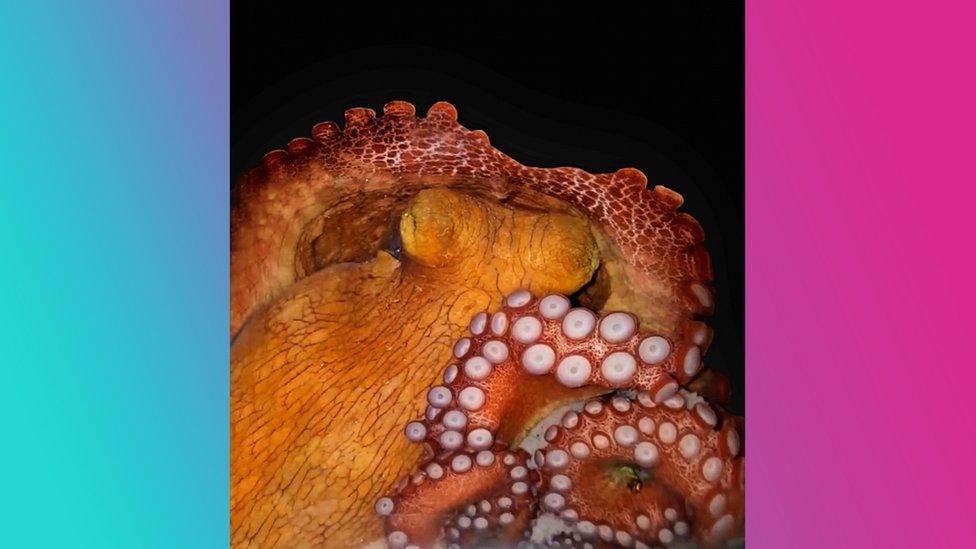Did you know that octopuses dream?!
- Published
- comments

This octopus is in its "active sleep" state. What do you think this amazing creature is dreaming about?
What has eight legs, three hearts, blue blood, AND camouflage skills?! Octopuses, of course!
And now there's one more amazing trait to add to the list - the ability to dream! Yep - you read that right!
It's after scientists in Brazil published new research that says octopuses can dream.
Their study showed that these extraordinary creatures can have different kinds of sleep - further proof that they're one of the most intelligent animals on earth.
What do you think octopuses dream about? Let us know in the comments below.
What else do we know?
Researchers found that octopuses experience two major alternating sleep states, similar to those in humans - and they might even dream.
The findings provide new evidence that the octopus has a sophisticated brain.
It's thought that the creature has the most complex brain than any invertebrate - which is the name given to animals that don't have a backbone.
What did the researchers do?
The team recorded four octopuses over several days and noticed how the alien-looking creatures' sleep pattern went through cycles.
Octopuses were previously known to experience sleep and change colours while dozing. In the new study, the researchers found that these colour changes are associated with two distinct sleep states: "quiet sleep" and "active sleep."
During "quiet sleep," the octopus remains still, with pale skin and eye pupils reduced to a slit.
During "active sleep," it changes its skin colour and texture and moves both eyes while contracting its suckers and body, with muscular twitches.
A continuous cycle between these two states took place during sleep. "Quiet sleep" lasted roughly seven minutes and "active sleep" lasted less than a minute.
'Active sleep' in the octopus has a very short duration, typically from a few seconds to one minute. If during this state there is any dreaming going on, it should be more like small video clips, or even GIFs
The sleep cycle of an octopus is similar to how humans sleep and thought to be a way to boost health and the brain's ability to process and acquire knowledge and understanding.
Humans tend to dream in a cycle of two types of sleep called Rapid Eye Movement or REM sleep and Non-Rapid Eye Movement or non-REM sleep. Ever watched someone sleeping and it looks like their eyes are flickering and they are dreaming? They probably are in REM sleep and having vivid dreams. Non-REM sleep is a deeper sleep with less dreaming.
Study lead author Sylvia Medeiros said the findings suggest octopuses may be dreaming, or experiencing something similar.
Understanding how sleep evolved
Scientists are hoping to use this research to greater understand the origins and evolution of sleep.
The study's co-author Sidarta Ribeiro, founder of the Brain Institute, said "the investigation of sleep and dreaming in the octopus gives us a vantage point" for a comparison with vertebrates (animals with a backbone).
She explained that this is because "the octopus possesses several sophisticated cognitive features that are only seen in some vertebrate species but with a very different brain architecture."
This essentially means that while an octopus' brain might look totally different to a humans, we share a similar ability to think and process information.
Ribeiro said that previous studies showed that octopuses have exceptional learning abilities, including spatial and social learning, as well as problem-solving capabilities.
"The understanding of how organisms as different as humans and octopuses can share fundamental traits such as the sleep cycle opens new avenues for the investigation of animal cognition and for the understanding of the general principles that shaped brain design in these groups of highly intelligent animals," Medeiros said.
What do you think octopuses dream about? Let us know in the comments below.
- Published16 September 2019
- Published7 May 2020
